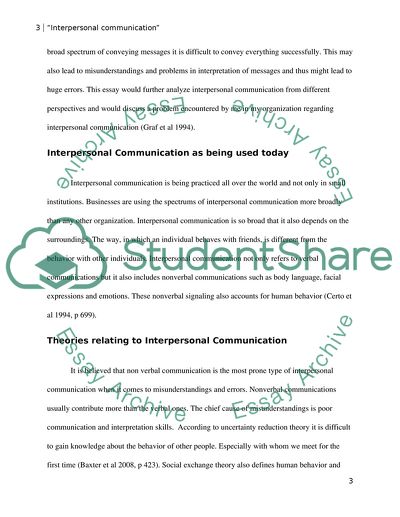Cite this document
(Interpersonal Communication Essay Example | Topics and Well Written Essays - 2500 words, n.d.)
Interpersonal Communication Essay Example | Topics and Well Written Essays - 2500 words. Retrieved from https://studentshare.org/journalism-communication/1735586-identify-and-describe-a-previously-encountered-or-ongoing-problem-in-your-own
Interpersonal Communication Essay Example | Topics and Well Written Essays - 2500 words. Retrieved from https://studentshare.org/journalism-communication/1735586-identify-and-describe-a-previously-encountered-or-ongoing-problem-in-your-own
(Interpersonal Communication Essay Example | Topics and Well Written Essays - 2500 Words)
Interpersonal Communication Essay Example | Topics and Well Written Essays - 2500 Words. https://studentshare.org/journalism-communication/1735586-identify-and-describe-a-previously-encountered-or-ongoing-problem-in-your-own.
Interpersonal Communication Essay Example | Topics and Well Written Essays - 2500 Words. https://studentshare.org/journalism-communication/1735586-identify-and-describe-a-previously-encountered-or-ongoing-problem-in-your-own.
“Interpersonal Communication Essay Example | Topics and Well Written Essays - 2500 Words”, n.d. https://studentshare.org/journalism-communication/1735586-identify-and-describe-a-previously-encountered-or-ongoing-problem-in-your-own.


